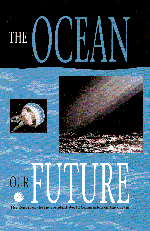5 - Our Oceans: Public Awareness and Participation
Published online by Cambridge University Press: 05 August 2012
Summary
The world's oceans are not only the domain of nation states and international organizations. They are also the legitimate concern of every human being. All those who have an interest or stake in the future of the oceans are natural and necessary participants in processes of ocean policy formulation and implementation.
Agenda 21 highlights the participatory role of major social groups in decision-making on sustainable development (section 3), the importance of public awareness and the availability of information to the public for this purpose (programme areas 36/B and 40/B) and, in the context of the integrated management and sustainable development of marine and coastal areas, the need to ‘Provide access, as far as possible, for concerned individuals, groups and organizations to relevant information and opportunities for consultation and participation in planning and decision-making at appropriate levels’ (objective 17.5).
Although there are welcome signs of change, opportunities for genuine civic–democratic involvement in ocean affairs remain very limited. This situation can only be corrected by major advances in public awareness and public participation.
PUBLIC AWARENESS, INFORMATION AND KNOWLEDGE
Public awareness of the oceans – the values they represent and the risks they face – is both a prerequisite for, and a result of, public participation in ocean governance. Beyond the simple human thirst for knowledge and quest for experience, people should know more about the oceans because they affect all of us profoundly, directly and indirectly, and in countless ways.
- Type
- Chapter
- Information
- The Ocean: Our Future , pp. 119 - 138Publisher: Cambridge University PressPrint publication year: 1998



